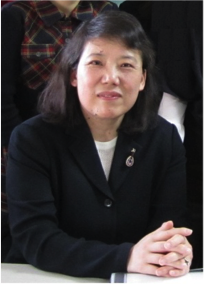The Department of Asian Studies will be offering three one-day workshops on language proficiency and assessment in the teaching of Cantonese, Japanese, Korean, and Mandarin languages on Apr 30-May 2, 2018. These workshops are facilitated by consultants and certified trainers of American Council on the Teaching of Foreign Languages (ACTFL).
The introduction to the three workshops can be found on ACTFL website https://www.actfl.org/assessment-professional-development/professional-development-workshops/proficiency-assessment-workshops#aappl. The introduction to the workshops and the presenters are included below for your convenience.
Workshop 1: AAPPL Familiarization Workshop
“This one-day introduction to the ACTFL Assessment of Performance towards Proficiency in Languages (AAPPL) is intended for all language professionals. This workshop will link Proficiency and Performance and how the assessment can be used to measure growth in the three modes of communication. Identifying what makes a learner Novice, Intermediate, or Advanced will be addressed and ideas for moving students along the continuum will be of great help to classroom teachers. Participants will work to develop a student-friendly rubric and practice using it to rate samples.”
Date and Time: Monday, Apr 30, 2018, 8:30am – 5:00pm
Location: Rm604, Asian Centre, UBC, 1871 West Mall, Vancouver, B.C. V6T 1Z2
Intended audience: Instructors in Cantonese, Japanese, Korean, and Mandarin
Targeted proficiency levels (All)
Number of Participants: 25
Workshop 2: Writing Guidelines Familiarization Workshop
“Intended as an introduction to the ACTFL Proficiency Guidelines 2012 – Writing, this workshop introduces participants to the major and minor level descriptors and the criteria for assigning a global writing proficiency rating. Participants explore a variety of writing tasks across levels of proficiency, evaluate language samples based on the criteria as described in the Guidelines, and design appropriate writing activities and writing assessment prompts at the four major levels.”
Date and Time: Tuesday, May 1, 2018, 8:30am – 5:00pm
Location: Rm604, Asian Centre, UBC, 1871 West Mall, Vancouver, B.C. V6T 1Z2
Intended audience: Instructors in Cantonese, Japanese, Korean, and Mandarin
Targeted proficiency levels (All)
Number of Participants: 25
Workshop 3: Developing Interpretive Reading and Listening Proficiency
“This workshop focuses on how to use the ACTFL Proficiency Guidelines to develop general proficiency in the interpretive modes of listening and reading in the target language. Participants will review the ACTFL Proficiency Guidelines for Reading and Listening, followed by an introduction to text typology for these interpretive modes. The majority of the workshop time is spent in hands-on activities to guide participants in how 1) to evaluate the effectiveness of their existing materials in terms of their overall goals and target audience, and 2) to select authentic reading and aural texts and use them to design appropriate proficiency-based activities at various levels. At the end of the workshop, participants will also have the opportunity to discuss implications for assessing these interpretive modes.”
Date and Time: Wednesday, May 2, 2018, 8:30am – 5:00pm
Location: Rm604, Asian Centre, UBC, 1871 West Mall, Vancouver, B.C. V6T 1Z2
Intended audience: Instructors in Cantonese, Japanese, Korean, and Mandarin
Targeted proficiency levels (All)
Number of Participants: 25
Presenters
Arnold Bleicher
Arnold Bleicher has been with ACTFL since 1995. In 1998, he became an OPI Trainer and has since presented ACTFL trainings on a wide array of topics concerning proficiency and performance standards, assessment tools, second language articulation, and instruction.


Arnold has 27 years of experience teaching Spanish and ESL. While most of his teaching was at the high school level, he also taught grades 4-6 and taught for two years at Southern Oregon University (SOU). There, he helped design the Master of Arts in Teaching Spanish degree offered through SOU and taught in Guanajuato, Mexico. He also served as director of the program for three years.
Besides the OPI, Arnold has worked on the ACTFL OPIc in English and
Spanish, and over the last few years, he has been involved with AAPPL. On his own time, he continues to mentor new teachers and design articulation programs for K-12.
Arnold received his B.A. in Secondary Education and M.A. in Teaching Languages. He is also the recipient of the State of Oregon Award for Outstanding Contribution to the Foreign Language Teaching Profession.
From Arnold Bleicher: “My original OPI training in 1995 was the biggest “A-Ha!” moment in my career. From that point on, my career took a huge leap forward, as did my students’ learning. It is that life-changing experience that fills me with joy every time I am privileged to work with world language educators.”
Sahie Kang
Sahie Kang (PhD in Linguistics, University of Florida 1990) is currently serving 

From Sahie Kang: “As an ACTFL Trainer, I value the tremendous opportunities not only to help teachers evaluate their students’ language proficiency more objectively but also to help them become a better teacher with realistic teaching and learning goals.
Conducting OPI workshops is one of my most favorite academic activities. It is interesting that I never get tired during the four day workshops that I conduct, even when they require me to travel on my own to places beyond American soil. Because of all the international workshops I conduct, the trainees often call me “OPI Missionary,” and I consider OPI training as my life mission.
The most recent group I trained in Sept 2012 commented a lot about their own teaching as not being very meaningful in terms of helping students to gain language proficiency throughout the four day workshop. On the final day, one of them commented “this OPI workshop is truly a life altering experience for me!” The rest of the trainees agreed that they became better teachers although they didn’t become testers instantly.”


